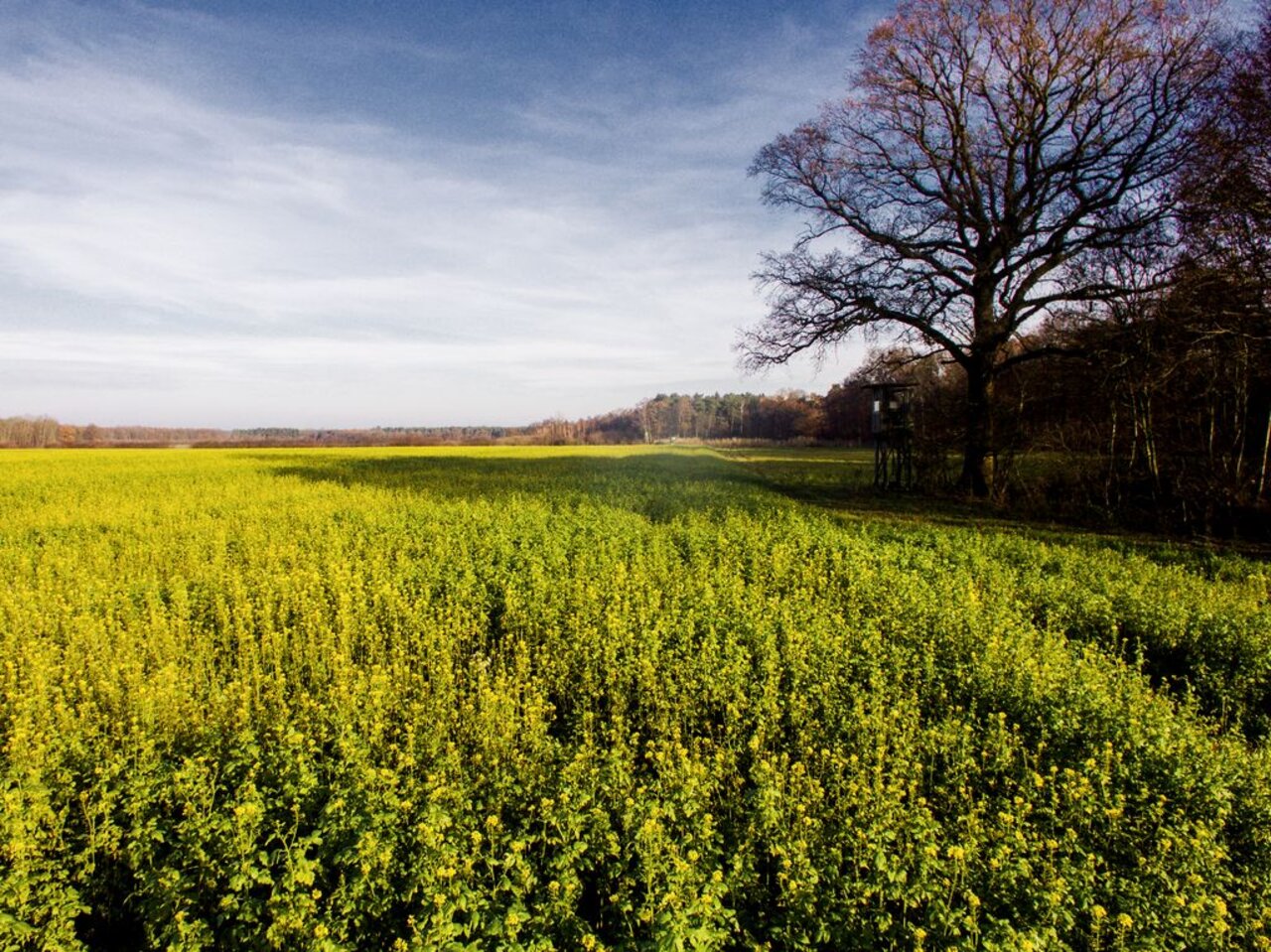Project
ALL-Ready - The European Agroecology Living Lab and Research Infrastructure Network: Preparation phase

The European Agroecology Living Lab and Research Infrastructure Network: Preparation phase
Paving the way for agroecology in Europe
Background and Objective
Today, agricultural systems are facing multiple challenges, including climate change, loss of biodiversity, dwindling resources, degradation of soil and water quality. Agroecology can strengthen the sustainability and resilience of farming systems and thus contribute to addressing these challenges. Based on the premise that Open Innovation Arrangements and in particular Living Labs and Research Infrastructures are instruments that have large potential to contribute to amplifying agroecology in Europe, the main aim of the ALL-Ready project is to prepare a framework for a future European network of Living Labs and Research Infrastructures that will enable the transition towards agroecology throughout Europe.
Approach
ALL-Ready relies on a highly participatory and inclusive approach and on experimentation in real life situations and thus itself uses a living lab approach. An underpinning principle of the project is strong stakeholder engagement, which has begun in the preparation of this proposal. The project has 3 phases: an initial preparatory phase in which the vision, scope and mission for the Network are defined and the criteria for inclusion in the Network of Living Labs and Research Infrastructures as well as other forms of Open Innovation Arrangements are defined. This will enable the mapping of current and emerging LLs, RIs and OIAs across Europe and their characteristics, highlighting best cases. In a second phase, different prerequisites and activities for the future Network will be prepared ‘(sustainability, including funding, governance, capacity building, data and knowledge management). Plans for each of these will be constructed with stakeholders and then tested in a small-scale pilot network and then refined to match needs. Finally, the outcomes of the work will be communicated widely throughout Europe by a variety of mechanisms. One of the final outcomes of the project will be a pilot-tested Implementation Plan for implementing the validated framework of the Network, within Horizon Europe.
Thünen-Contact

Involved Thünen-Partners
Involved external Thünen-Partners
- Institut national de recherche pour l’agriculture, l’alimentation et l’environnement (INRAE)
(Paris, Toulouse, Montpellier, Avignon, Ivry-sur-Seine, Clermont-Ferrand, Rennes, Thiverval-Grignon, Dijon, Orleans, Bordeaux, Pierroton, Frankreich) - Aarhus University
(Aarhus, Tjele, Dänemark) - (Flanders Research) Institute for Agricultural and Fisheries Research, (ILVO)
(Oostende, Belgien) -
Ecologic Institut
(Berlin, Deutschland) -
ÖMKi Hungarian Research Institute of Organic Agriculture
(Budapest, Ungarn) -
European Landowners Organization
(Brüssel, Belgien) - Forschungsinstitut für biologischen Landbau (FiBL)
(Frick, Schweiz) -
Agriculture and Agri-Food Canada / Agriculture et Agroalimentaire Canada (AAC)
(Ottawa, Québec, Kanada)
Funding Body
-
European Union (EU)
(international, öffentlich)
Duration
11.2020 - 10.2023
More Information
Project funding number: 101000349
Funding program: EU – Horizon 2020 – Societal Challenge "Food Security, Sustainable Agriculture and Forestry, Marine, Maritime and Inland Water Research and the Bioeconomy"
Project status:
finished
Publications to the project
- 0
Schwarz G, Stojacic I, Riedel A, Fosselle S, Bijttebier J, Göldel B, Cavallo D, Couture I, McPhee C, Varga K, Csonka V, Ávila JM, Soto I, Caro D, Thorsøe MH, Berg T, Trkulja I, Haller L, Moeskops B, Monteleone D, et al (2024) Guidance for the implementation plan for a European Network of Agroecology Living Labs and Research Infrastructures : ALL-Ready Project Deliverable 4.3. 25 p, DOI:10.5281/zenodo.10728309
- 1
McPhee C, Schwarz G (2024) Living Lab Networks for the transformation of agroecosystems: Network characteristics and policy implications. In: Leibniz Centre for Agricultural Landscape Research (ed) LANDSCAPE 2024: Agroecosystems in transformation: Visions, technologies and actors; Book of abstracts. p 118
- 2
Stojacic I, Schwarz G, Riedel A, Hobeika M, Fosselle S, Bijttebier J, Göldel B, Cavallo D, Couture I, Haller L (2024) Report on the preconditions for the sustainability of the Network and recommendations for its long term success : ALL-Ready Project Deliverable 4.2. 41 p, DOI:10.5281/zenodo.10728338
- 3
Rødel Berg T, Thorsøe MH, Schwarz G (2023) Accelerating agroecology transition using living labs: policy enablers and barriers : Policy brief. Dept Agroecology, Aarhus Univ, 5 p, DOI:10.5281/zenodo.10001865
- 4
Fehér J, McKhann H, Schwarz G, Moeskops B, Haller L (2023) How Living Labs and Research Infrastructures can support the agroecology transition in Europe - Key messages of the final conference : Policy brief. FiBL Europe, INRAE, Thünen Institute, 3 p, DOI:10.5281/zenodo.10063976
- 5
McPhee C, Schwarz G (2023) Living Lab Networks in agriculture: Success factors and policy implications : Policy brief. Ottawa; Braunschweig: Agriculture and Agri-Food Canada; Thünen Institute, 4 p, DOI:10.5281/zenodo.10042097
- 6
Schwarz G, Stojacic I, Fehér J, Monteleone D, Haller L, Moeskops B, Rødel Berg T, Thorsøe MH, Bijttebier J, Fosselle S, Hobeika M, Göldel B, Canio Perez R, Caro D, Ávila JM, Soto I, Riedel A, McPhee C, Cavallo D, Couture I, Varga K (2023) Policy briefs for regional, national and EU-level policy makers : ALL-Ready Project Deliverable 4.4. 7 p, DOI:10.5281/zenodo.10787368
- 7
Vervoort K, Varga C, Fosselle S, Bijttebier J, Haller L, Schwarz G, Göldel B, McKann H, Avila Castuera JM, Rødel Berg T, de Porras M, Mambrini-Doudet M (2023) Report on mapped needs and the key endusers of the capacity building programme : ALL-Ready Project Deliverable 5.1. 42 p, DOI:10.5281/zenodo.8154348
- 8
Bijttebier J, Fosselle S, Vervoort K, Schwarz G, McKann H, Varga C (2023) Skills and Competencies Framework : ALL-Ready Project Deliverable 5.2. 28 p, DOI:10.5281/zenodo.8154481
- 9
Bijttebier J, Fosselle S, Liberloo M, Varga C, Herb I, Hobeika M, Mambrini-Doudet M, Rødel Berg T, Vervoort K, Schwarz G, Avila Castuera JM, de Porras M (2023) Stakeholder engagement plan : ALL-Ready Project Deliverable 3.1. 39 p, DOI:10.5281/zenodo.8153976
- 10
Schwarz G, Stojacic I, Riedel A, Hobeika M, Fosselle S, Bijttebier J, Göldel B, Cavallo D, Couture I, Monteleone D, Haller L (2023) Supporting the sustainable long-term implementation of a European Network of Agroecology Living Labs and Research Infrastructures : Policy brief. Thünen Institute, BIOSENSE, Ecologic Institute, ILVO, INRAE, ENoLL, ELO, FiBL Europe, 4 p, DOI:10.5281/zenodo.10033336
- 11
Stojacic I, Schwarz G, Hobeika M, Göldel B, Canio Perez R, Fehér J, Monteleone D, Moeskops B (2023) The benefits of a European Network of Agroecology Living Labs and Research Infrastructures : Policy brief. BIOSENSE, Thünen Institute, Ecologic Institute, INRAE, FiBL Europe, ELO, 4 p, DOI:10.5281/zenodo.10001815
- 12
Thorsøe MH, Iversen SV, De Notaris C, Trkulja I, Rødel Berg T, Fosselle S, Bijttebier J, Kohler E, Godel B, Avila Castuera JM, Jónász G, Krywoszynska A, Schwarz G (2022) Drivers of agroecology transition : ALL-Ready Project Deliverable 2.3 : ALL-Ready - The European Agroecology, Living Lab and Research Infrastructure Network: preparation phase. 111 p
- 13
Schwarz G, Hobeika M, Stojacic I, Göldel B, Perez RC (2022) Report on the added value of the European Network : ALL-Ready Project Deliverable 4.1. : ALL-Ready - The European Agroecology Living Lab and Research Infrastructure Network: preparation phase. 28 p, DOI:10.5281/zenodo.7105206
- 14
Schwarz G, Hobeika M, Stojacic I, Göldel B, Canio Perez R (2022) The added value of a European network of Agroecology Living Labs and research infrastructures : fact sheet for policy-makers, agroecology organizations and researchers [online]. Braunschweig: Thünen-Institut für Betriebswirtschaft, 2 p, zu finden in <https://zenodo.org/record/7447971> [zitiert am 04.01.2023], DOI:10.5281/zenodo.7447971








